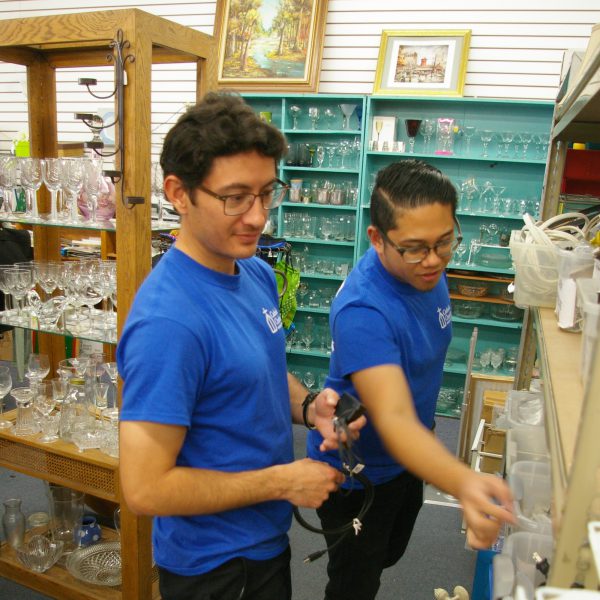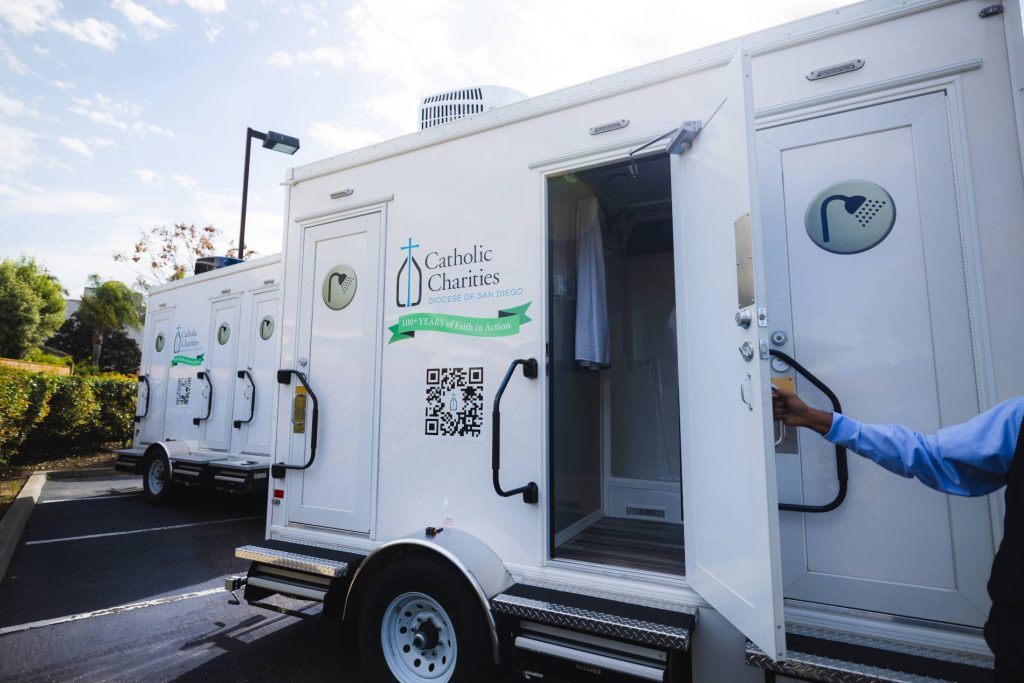SAN DIEGO — Not everything a future priest needs to know can be gleaned from theology textbooks.
That seems to be the logic behind the “field placements” that are a key component of the diocese’s recently revamped seminary program.
The redesigned program, which was announced last June, marked the end of the 50-year practice of sending local seminarians to other dioceses for their four years of graduate-level theology — an arrangement that had resulted in newly ordained priests with limited experience of the inner workings of their home diocese and limited inter-action with its priests and parishes. Instead, they will now continue their studies at the Franciscan School of Theology, which has been located since last summer on the cam-pus of the University of San Diego.
“Field placements” are essentially internhips designed to provide seminarians with firsthand experience with diocesan and parish ministries and to help them make personal connections with those who run those ministries.
For Laura Martin-Spencer, director of pastoral formation at St. Francis de Sales House of Priestly Formation, the field placements represent “one of the best out-comes of keeping the seminarians here” in San Diego.
In their first year of theology, each seminarian will spend one semester assigned to a diocesan pastoral office and the other with Catholic Charities. During the same period, they will also have a Sunday assignment at a local parish, where they will assist the pastor, who in turn will serve as their mentor.
In their second year, the seminarians will be assigned to a full-year field placement at a specific parish, where they will develop their skills as teachers of the faith by serving on the parish’s Rite of Christian Initiation of Adults (RCIA) team.
Next will come a “pastoral year” during which the seminarians will have only one academic class and will dedicate the remainder of their time to, as Martin-Spencer puts it, “meeting the pastoral needs of parishioners.”
In the seminarians’ final year, as they once again assume a full academic course-load, the field placements will be uniquely tailored to each seminarian, providing the opportunity to work on those specific areas in which more growth is required before ordination.
“One of our greatest hopes is that [the seminarians are] able to build relationships, understand our diocese and our Catholic Charities from the inside out,” Martin-Spencer said of the field placements, adding that the diocese’s priestly formation team has already seen evidence of that.
The fall semester field placements ran from mid-September to mid-December. The spring semester’s began during the last week of January.
Seminarian Chris Bongato, 27, was assigned to the diocesan Office for Family Life and Spirituality during the fall semester and spent his Sundays assisting the pastor at St. Martin of Tours Parish in La Mesa.
In addition to staffing several Family Life and Spirituality events, Bongato also used his filmmaking background to create a promotional video for the office’s marriage preparation program.
Thanks to his field placement, he ended the first semester with a better sense of the diverse resources that the Local Church offers to couples and to families of all types.
“The field placement helps to give us practical knowledge and allows us to meet real people with their real problems,” said Bongato, who has been placed with Catholic Charities this semester. “We get to apply what we learned in our classes and meet people in a pastoral way, so that they may grow in knowledge and faith within the Church and their families.”
Matthew Vasquez, 24, served last semester in the Office for Evangelization and Catechetical Ministry (OECM) and, like Bongato, has also been assigned to Catholic Charities this semester. He undertook a number of tasks during his time in the Evangelization and Catechetical Ministry Office, including creating the office’s annual Christmas card and setting up and breaking down for various events. A large part of his time was spent visiting directors of catechetical ministry at their parishes.
“Spending time at the Pastoral Center, and especially at OECM, has definitely broadened my understanding of how the diocese operates,” Vasquez said. “The Church certainly functions as an institution, but not without the particular needs of parishes, families and individuals being accounted for. As a priest, I hope to continue broadening my perspective on the Church so that my ministry is not only effective, but done with a heart that respects the dignity and uniqueness of every person.”
Vasquez said that pastoral experiences, like the one he just had, “give flesh” to the theology he and his fellow seminarians are learning in the classroom.
Martin-Spencer noted that one significant aspect of the new formation program, especially through the field placements, is that the greater Catholic community is given a say in the discernment of the seminarians’ vocation.
“I think it’s really important that the community has a role in the formation of our priests,” she said, “that the community has a role in saying, ‘Yes, I think they are called to the priesthood.’”
Diocesan and Catholic Charities leadership have expressed appreciation for the field placement program and gratitude for the contributions the seminarians made during the recently concluded semester.
“The relational piece to ministry is crucial and fundamental,” said Diocesan Chancellor Maria Olivia Galván, who also heads the diocesan Office for Evangelization and Catechetical Ministry, where Vasquez was placed last semester.
She noted that field placements provide future priests with “a tremendous advantage” in terms of knowing the resources that are available to them as pastors and where they can turn for assistance.
Dr. Robert Ehnow directs the diocesan Office for Life, Peace and Justice, where seminarian Ivan Mora had his fall field placement. Mora worked in the office for about four to five hours every Thursday, impressing Ehnow and his staff.
Describing the seminarian as “an absolute blessing,” Ehnow said Mora’s presence was a great help to the staff. He recalled one occasion on which he had asked Mora to assist him in answering letters from prison inmates.
“I was particularly impressed that Ivan took each letter to prayer and then wrote beautiful and inspiring responses,” Ehnow said.
Appaswamy “Vino” Pajanor, chief executive officer of Catholic Charities Diocese of San Diego, noted that the field placement program is “a two-way street.”
During the fall semester, seminarians Evan Bui and Emmanuel Gutierrez “helped us at our food distributions, shelters and other programs, which was well received by the recipients of those services,” he said.
Pajanor added, “We hope that, through this internship, the seminarians got first-hand experience of being a servant-leader and what it takes to be a Good Samaritan in the current times.”










